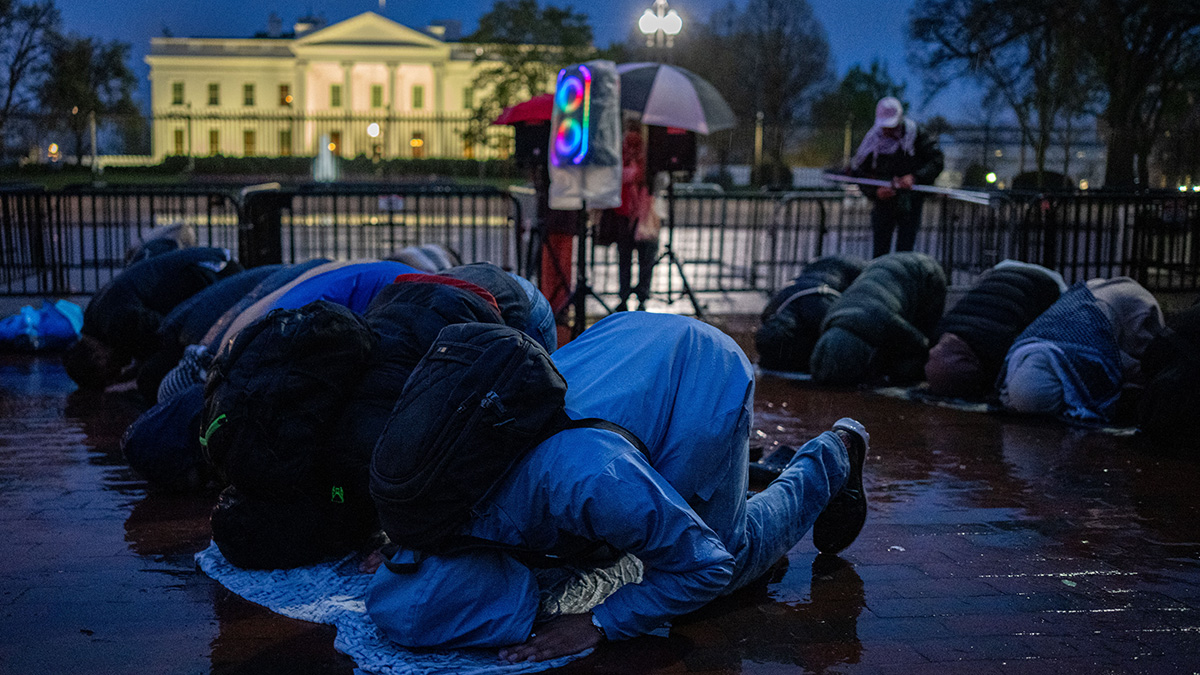As the United States approaches the upcoming presidential election in November 2024, a significant decline in support for the Democratic Party among Muslim voters has become increasingly evident. Historically, the Muslim American community has been a reliable voting bloc for the Democrats. However, a combination of US foreign policy decisions, particularly regarding Israel and Palestine, is prompting many in this demographic to reconsider their political allegiance.
Impact of foreign policy on voter sentiment
The Biden administration’s unyielding support for Israel amid ongoing violence in Gaza has sparked outrage within the Muslim community. Reports from Reuters reveal that many Muslims feel that the administration’s backing of Israel’s military actions, which have reportedly resulted in thousands of civilian deaths, undermines American values and principles of justice. Vice President Kamala Harris and her running mate, Minnesota Governor Tim Walz, have acknowledged this discontent. During an online meeting organised by Emgage Action, Walz said, “The scale of death and destruction in Gaza is staggering and devastating,” echoing sentiments shared by many Muslim Americans who believe that US military aid to Israel exacerbates Palestinian suffering.
According to Reuters, the support for President Biden among Muslim voters has plummeted to just 12 per cent, a sharp decline from the 65 per cent he received in the 2020 election. This alarming drop signals a broader discontent with the Democratic Party, particularly in how it addresses issues pertinent to Muslim Americans.
Lessons from the 2020 election and future strategies
The 2020 election illustrated the potential of the Muslim vote to influence outcomes in key battleground states. A robust mobilisation effort by Muslim organisations contributed to Biden’s narrow victories in states like Michigan and Pennsylvania. However, as the political landscape shifts, the Democratic Party faces the urgent challenge of rekindling its relationship with this vital voter base.
Impact Shorts
More ShortsMuslim voters have shown that their support hinges on how well political candidates address their concerns. Many Muslim Americans are increasingly focussed on issues that directly impact their communities, particularly foreign policy. According to Asifa Quraishi-Landes, a law professor, American Muslims need to prioritise public good over personal religious mandates when casting their votes. This approach highlights the necessity for political candidates to engage in meaningful dialogue with the Muslim community, demonstrating a commitment to policies that resonate with their interests.
Role of Muslim voices in American politics
In their 2018 piece The American Muslim voter: Community belonging and political participation authors Angela X Ocampo, Karam Dana and Matt A Barreto said that the visibility of Muslim Americans in the political sphere has grown substantially since the aftermath of 9/11. Though Muslims represent roughly 1 per cent of the US population, their concentrated presence in swing states makes them a formidable voting bloc. A study by the Institute for Social Policy and Understanding found that the upward trend in Muslim voter registration surged from 60 per cent in 2016 to 78 per cent in 2020, reflecting increased political engagement within the community.
Muslim voices are increasingly essential as they advocate for issues that resonate with their identities and experiences. The war in Gaza has emerged as a key concern for Muslim voters, eclipsing traditional issues like healthcare and the economy. This shift in focus emphasises the need for the Democratic Party to acknowledge the significance of foreign policy in shaping voter sentiment among Muslim Americans.
Understanding Sharia and democratic participation
A critical component of engaging Muslim voters lies in understanding the intersection of faith and democratic participation. As Quraishi-Landes points out, American Muslims must engage with the democratic process while adhering to the laws of their host country. This understanding fosters a nuanced perspective of Sharia, which does not advocate for imposing religious rules on others but rather guides personal conduct.
By fostering civic engagement and emphasising the importance of participating in the electoral process, Muslim Americans can amplify their voices and influence policy decisions. A study by Ocampo, Dana and Barreto found that American Muslims who engage with their religious identity and reside in areas with higher co-ethnic populations are more likely to vote. This finding highlights the significance of community connections and collective action in enhancing political participation.
Muslim political participation in America
Understanding the historical context of Muslim political participation provides valuable insight into the current dynamics. Following the post-9/11 era, Muslim Americans have faced increasing scrutiny and prejudice, further complicating their political engagement. The 2016 presidential campaign, marked by Donald Trump’s Islamophobic rhetoric showed the challenges faced by Muslim Americans in the political arena.
Despite these challenges, some Democratic candidates have made strides in acknowledging the Muslim community. Former President Barack Obama’s assertion during his 2008 campaign that being labelled a Muslim is not an insult exemplified a shift in rhetoric. However, the Democratic Party has yet to consistently pursue outreach efforts to effectively mobilise Muslim voters.
A call for engagement
The erosion of Muslim support for Democrats ahead of the 2024 election is a wake-up call for the party. To regain the trust of Muslim Americans, the Democratic Party must prioritise listening to and addressing their concerns, particularly regarding US foreign policy.
Meaningful engagement and dialogue, accompanied by tangible policy changes, are critical for restoring support among Muslim voters. The historical context of Muslim political participation highlights the challenges and opportunities that lie ahead.
As the political landscape shifts, amplifying the voices of Muslim Americans is essential for a more inclusive democracy in the US. The 2024 elections present an opportunity for both political parties to recognise the importance of the Muslim vote and to engage with this community in ways that reflect their values and concerns.


)

)
)
)
)
)
)
)
)



